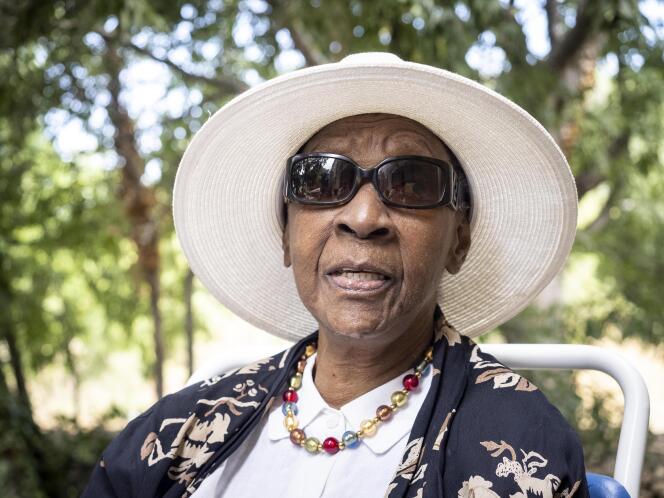


Ever since she won the New Academy Prize in Literature in October 2018, before being welcomed back to Guadeloupe with honors, Maryse Condé had said she was at peace. With herself, with the literary world, with her vocation. She died at the age of 90 on Monday night at a hospital in Apt, outside of Marseille in southern France, her husband told Agence France-Presse on Tuesday, April 2.
Her masterly work describes "in precise language (...) the ravages of colonialism and the chaos of post-colonialism," according to the Nouvelle Académie. Read and studied all over the world, the Columbia University professor, the writer who has lived in Paris, Africa, the Caribbean and the US, the activist and "grand novelist" from Guadeloupe had dedicated the long-awaited award to her "country," which she had hoped would become independent all her life.
Condé's novels, plays, children's books, memoirs and essays are similarly driven by an irrepressible need to understand. To understand her life. To understand life. To understand what drives people and the world. And to understand this in the context of the fall of a Bambara kingdom (Ségou, 1984 and 1985) as in her native environment among the Caribbean bourgeoisie (Tales from the Heart: True Stories from my Childhood, 1999). She examined life through Guadeloupean mentalities and beliefs (Crossing the Mangrove, 1989 and Who Slashed Celanire's Throat?, 2000) as well as through French jihadism, the inspiration for her latest novel The Wondrous and Tragic Life of Ivan and Ivana (2017), and through interracial couples and the status of the woman artist (The Story of the Cannibal Woman, 2003) as in the journey of her maternal grandmother, an exceptional cook who "rented out her services" to the white families of Guadeloupe (Victoire: My Mother's Mother, 2006). Her refusal to be assigned an identity and convenient labels – no, she wasn't a Francophone novelist, she wrote as "Maryse Condé" – and her lucidity and biting irony all contributed to making her voice singular. Her loss is immense.
The youngest of eight siblings, Maryse Liliane Appoline Boucolon was born in Pointe-à-Pitre in Guadeloupe on February 11, 1934. Her father, Auguste Boucolon, was a merchant and bank founder. Her mother, Jeanne Quidal, was Guadeloupe's first Black schoolteacher. Her parents raised their children with a love of French culture and ignorance of their African ancestry. They traveled regularly to Paris and never spoke Créole at home. They dreamt of their daughter becoming a civil servant, of marrying a Caribbean civil servant. She aspired to something else.
You have 60.15% of this article left to read. The rest is for subscribers only.
